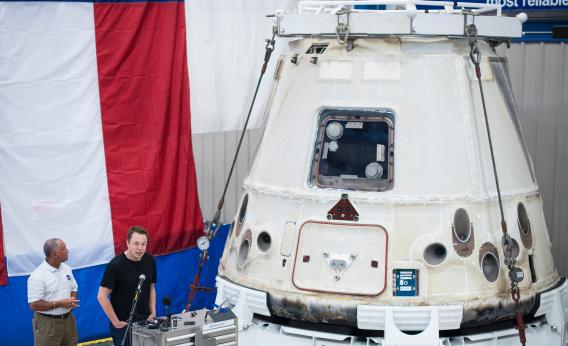Since shutting down its space shuttle program last summer, NASA has been relying on the Russians to blast its astronauts to the International Space Station. Eventually, though, it wants private companies to take over. Today it announced a big step toward that, handing out $1.1 billion in funding to three U.S.-based firms, led by Boeing and SpaceX.
Boeing will get $460 million to work on its CST-100 spacecraft, while SpaceX will receive $440 million to develop its Dragon capsule and Falcon 9 rocket. A third company, Nevada-based Sierra Nevada, will receive another $212 million to develop its Dream Chaser craft.
Over the next 21 months, the companies will try to complete a series of milestones as they compete for the next round of funding. The ultimate goal is to get privately owned craft in shape to ferry both NASA crew and commercial customers into low-earth orbit within the next five years.
In Boeing and SpaceX, NASA is hedging its bets between the establishment and the new wave in the aerospace industry. A big government contract for Boeing, the nearly century-old Chicago-based giant, is no surprise. But this is a big vote of confidence in Los Angeles-based startup SpaceX, launched just a decade ago by PayPal co-founder Elon Musk, who also runs the electric car company Tesla.
On the other hand, you could make the case that SpaceX should have gotten even more of the pie. Its Dragon, after all, is the only one of the competing craft that has actually completed a NASA space mission, carrying a load of supplies to the International Space Station in May.
It’s a shame that NASA’s own shuttle program was deemed expendable by the government. But outsourcing the job to companies like Boeing and SpaceX sounds a lot better than outsourcing it to Russia.
